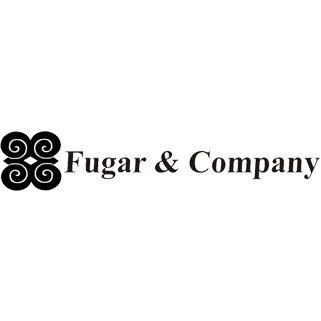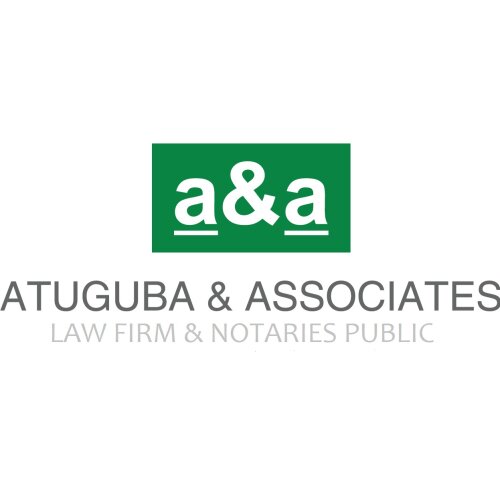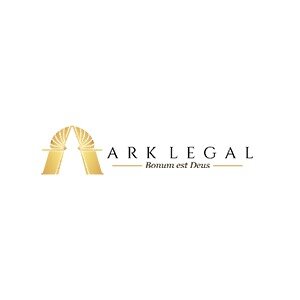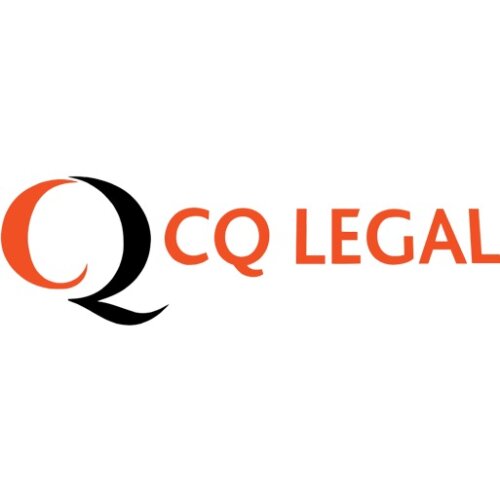Best Financial Services Regulation Lawyers in Ghana
Share your needs with us, get contacted by law firms.
Free. Takes 2 min.
Or refine your search by selecting a city:
List of the best lawyers in Ghana
About Financial Services Regulation Law in Ghana
Financial Services Regulation in Ghana is a complex framework established to oversee and control the financial sector. The regulation ensures stability, promotes healthy competition, and protects consumers in the financial services market. Key institutions like the Bank of Ghana, the Securities and Exchange Commission, and the National Insurance Commission play critical roles in the regulatory environment. They work collectively to establish guidelines for licensing, financial reporting, anti-money laundering, and consumer protection.
Why You May Need a Lawyer
There are various circumstances where individuals and businesses may seek legal advice in the realm of Financial Services Regulation. Common scenarios include:
- Starting or expanding a financial services business and needing guidance on compliance with local laws.
- Facing disputes related to regulatory violations or need for representation in legal proceedings against regulatory bodies.
- Advising on mergers, acquisitions, and restructuring within the financial services industry.
- Drafting and reviewing contracts and agreements for compliance with regulatory standards.
- Seeking legal advice on issues like data protection, anti-money laundering, and customer privacy.
Local Laws Overview
The financial services sector in Ghana is primarily guided by several legislative acts and regulations, including:
- Bank of Ghana Act, 2002 (Act 612): This act oversees the licensing and supervision of banks and non-bank financial institutions.
- Securities Industry Act, 2016 (Act 929): This law governs capital markets and provides for the regulation of the securities industry.
- Insurance Act, 2021 (Act 1061): This regulates the insurance industry, ensuring the protection of policyholders and guiding insurance operations.
- Payment Systems and Services Act, 2019 (Act 987): Focusing on the regulation of electronic payments, mobile money operations, and fintech innovations.
- Anti-Money Laundering Act, 2020 (Act 1044): Establishes the framework for combating money laundering and terrorist financing.
Frequently Asked Questions
What does financial services regulation entail in Ghana?
It involves oversight and regulation of financial institutions to ensure they operate within legal standards to promote economic stability and consumer protection.
Are foreign investments regulated under financial services laws in Ghana?
Yes, foreign investments are subject to regulation to ensure compliance with national policies and protection against illicit financial activities.
How can I obtain a financial services license in Ghana?
You need to apply to the relevant regulatory body, such as the Bank of Ghana or the Securities and Exchange Commission, comply with requirements, and undergo a vetting process.
What is the role of the Bank of Ghana in financial regulation?
The Bank of Ghana is the central bank responsible for monetary policy, financial stability, and overseeing banks and non-bank financial institutions.
Can individuals challenge decisions made by regulatory bodies?
Yes, individuals and businesses can seek legal redress through administrative reviews or court rulings to challenge regulatory decisions.
Is fintech regulated under financial services law in Ghana?
Yes, fintech companies are regulated under laws such as the Payment Systems and Services Act to ensure security, efficiency, and consumer protection.
What should I do if I suspect financial regulation violations?
Report the suspected violation to the relevant regulatory body, such as the Financial Intelligence Centre, or seek legal advice for further action.
Are there consumer protections under these regulations?
Yes, laws mandate financial services to uphold consumer rights and protect against fraud, misinformation, and unfair practices.
What is the role of the Securities and Exchange Commission?
The SEC is responsible for regulating securities markets to protect investors, maintain fair and efficient markets, and facilitate capital formation.
How frequently are financial regulations updated in Ghana?
Regulations are periodically reviewed and updated by legislative action, reflecting changes in the financial landscape and international best practices.
Additional Resources
For further information or assistance, consider reaching out to the following bodies and organizations:
- Bank of Ghana: For banking and non-bank financial services regulation.
- Securities and Exchange Commission: Issues regarding capital markets and securities.
- National Insurance Commission: To address insurance-related queries and regulations.
- Financial Intelligence Centre: For matters related to money laundering and financial crimes.
- Ghana Bar Association: To find qualified legal professionals who specialize in financial services regulation.
Next Steps
If you need legal assistance in Financial Services Regulation in Ghana, consider these steps:
- Identify the specific area of financial services regulation where you need help.
- Gather all relevant documents and information related to your legal issue.
- Contact a reputable law firm or legal practitioner specializing in financial services regulation in Ghana.
- Consult with the lawyer to discuss your case, explore your options, and develop a legal strategy.
- Stay informed about your legal rights and responsibilities, and actively participate in resolving your case.
Lawzana helps you find the best lawyers and law firms in Ghana through a curated and pre-screened list of qualified legal professionals. Our platform offers rankings and detailed profiles of attorneys and law firms, allowing you to compare based on practice areas, including Financial Services Regulation, experience, and client feedback.
Each profile includes a description of the firm's areas of practice, client reviews, team members and partners, year of establishment, spoken languages, office locations, contact information, social media presence, and any published articles or resources. Most firms on our platform speak English and are experienced in both local and international legal matters.
Get a quote from top-rated law firms in Ghana — quickly, securely, and without unnecessary hassle.
Disclaimer:
The information provided on this page is for general informational purposes only and does not constitute legal advice. While we strive to ensure the accuracy and relevance of the content, legal information may change over time, and interpretations of the law can vary. You should always consult with a qualified legal professional for advice specific to your situation.
We disclaim all liability for actions taken or not taken based on the content of this page. If you believe any information is incorrect or outdated, please contact us, and we will review and update it where appropriate.
Browse financial services regulation law firms by city in Ghana
Refine your search by selecting a city.

















